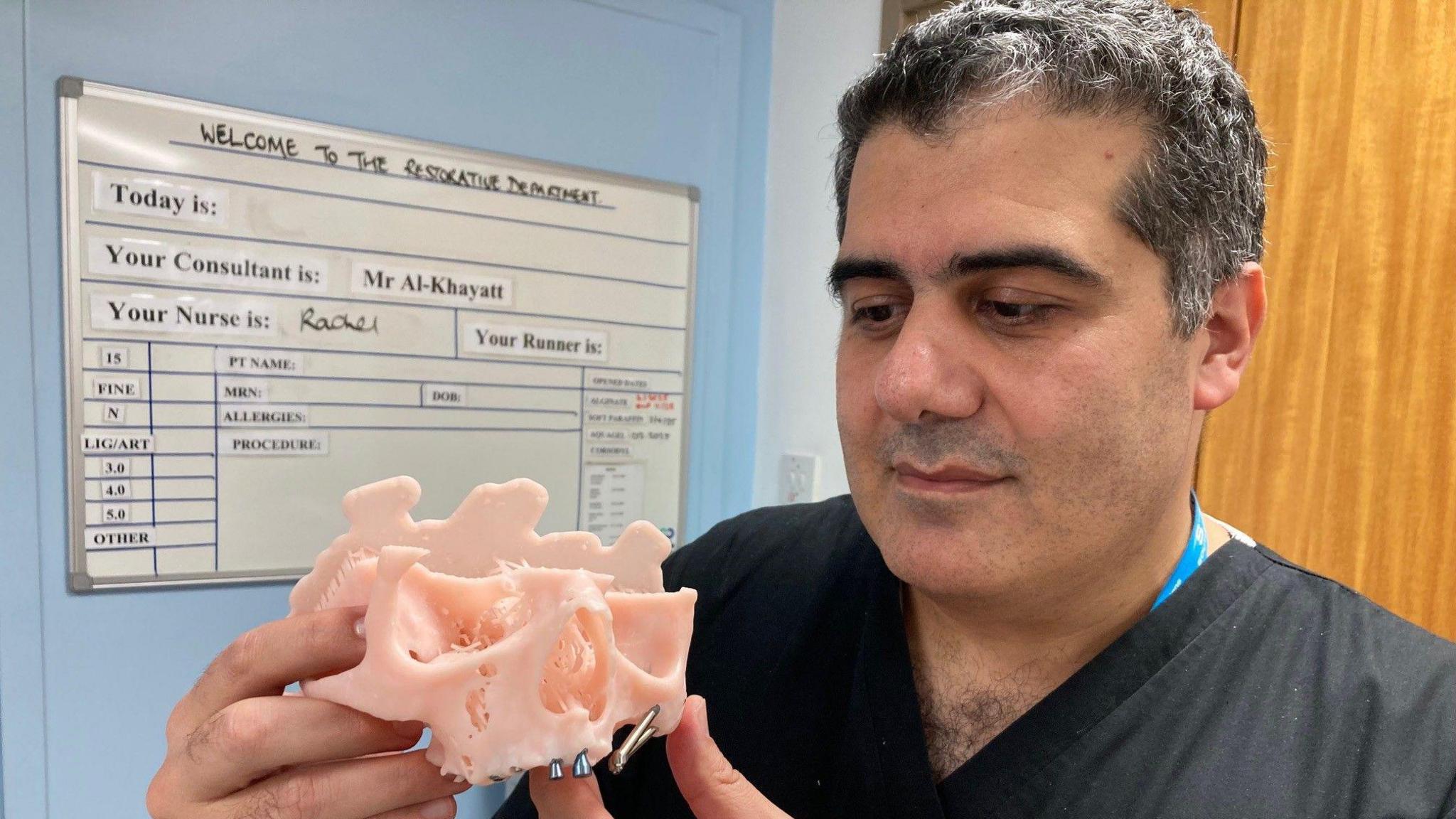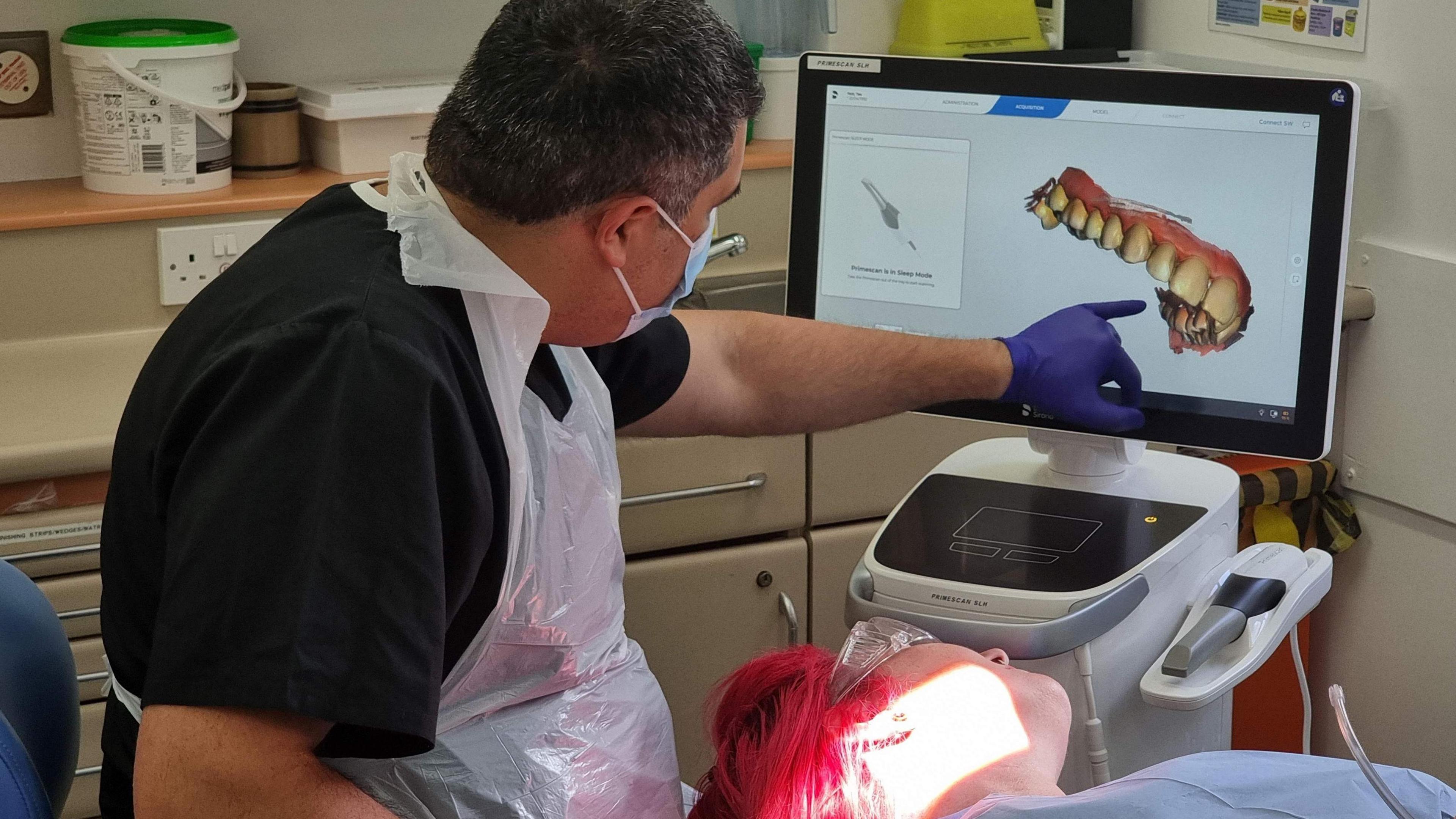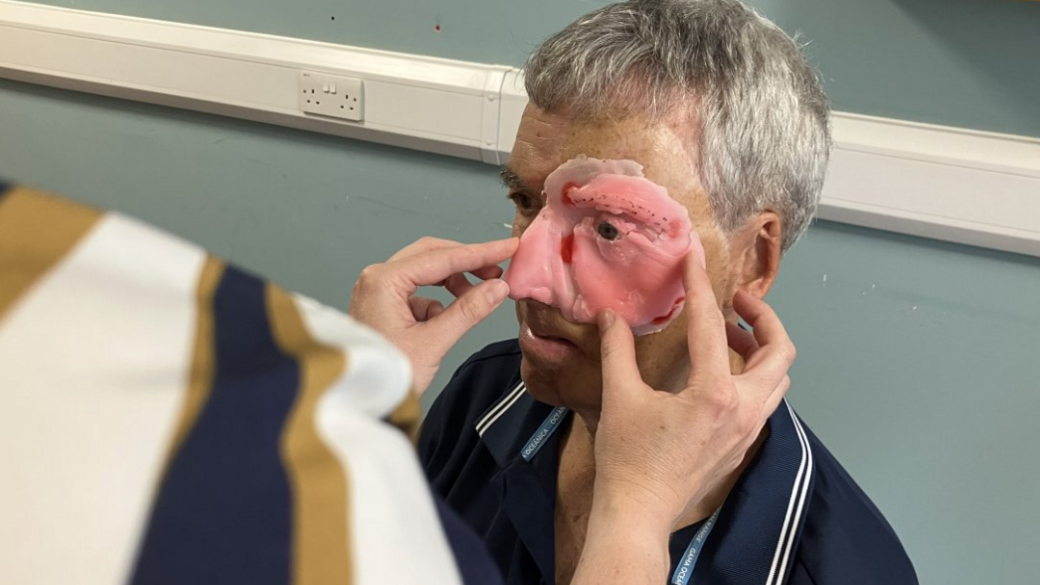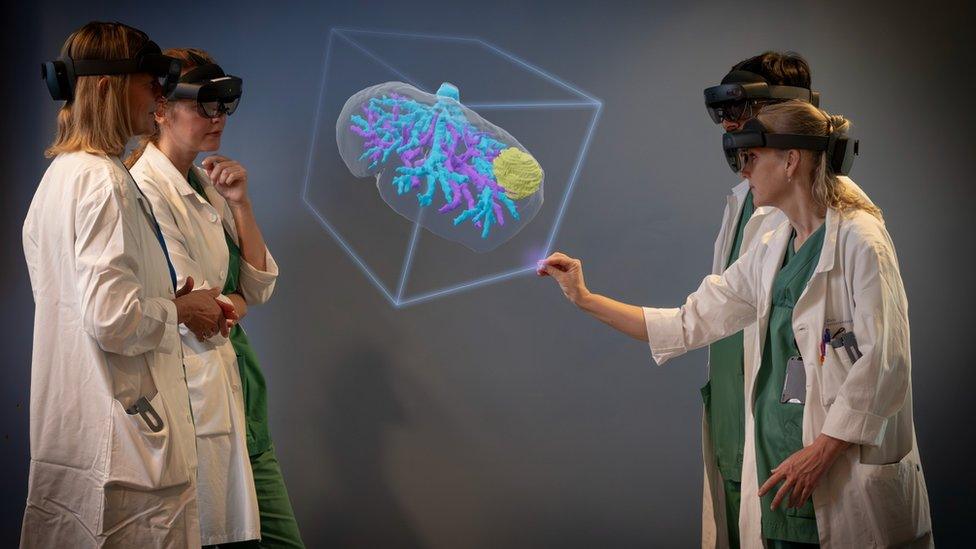3D scanner speeds up treatment for cancer patients

Consultant Mr Ahmed Al-Khayatt holding a 3D print out of a human skull
- Published
A new 3D scanner and printer has halved the number of appointments patients undergoing facial reconstructive treatment need to attend.
The intra-oral scanner means people who previously needed multiple lengthy and uncomfortable consultations for their teeth and gums to be mapped now only need a five-minute scan.
Staff at Bradford Teaching Hospitals NHS Trust then use the impressions and a 3D printer to make teeth and gum prosthetics for patients who have had surgery for head and neck cancers.
Ahmed Al-Khayatt, restorative dentistry lead at the trust, said: "We can now provide a much more accurate, faster, and more comfortable experience for our patients."

The scanner creates an accurate image of the patient's mouth which can be printed out before surgery
The £18,500 scanner and £5,000 printer were purchased by the Bradford Hospitals Charity, which pays for projects and equipment beyond the scope of government funding.
'Real difference'
Mr Al-Khayatt said the new technology required far fewer appointments for patients than the old system, which could involve consultations over 10 to 12 weeks before construction of a prosthetic.
He said: "Before we had this technology, patients often faced multiple uncomfortable appointments to undergo viscous jelly moulds in the mouth that often makes people retch during the two to five minute procedure."
He said the moulds were then transferred to a lab where fragile plaster casts were made, which he said "could break easily, sometimes needing reappointing of patients to undergo the same oral procedures just described".
The new technology can be used to show patients a model of their treatment before they undergo a procedure.
It can also enable surgeons to rehearse highly complex procedures in advance.
Laura Riach is director of Bradford Hospitals Charity which was founded in 1997.
She said the scanner and printer were "already making a real difference to patients undergoing some of the most complex surgery".
"This is exactly why charitable giving is so important for our hospitals," she added.
Listen to highlights from West Yorkshire on BBC Sounds, catch up with the latest episode of Look North.
Get in touch
Tell us which stories we should cover in Yorkshire
Related topics
- Published17 June

- Published5 February 2024
